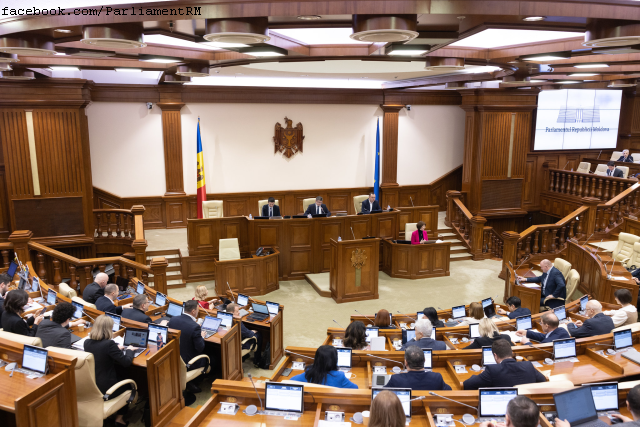Romanian language is back into Moldova’s legislation
Moldovan Parliament decided that Romanian is the official language of the Republic of Moldova.

Bogdan Matei, 17.03.2023, 13:50
The movement of national revival in the present-day Republic of Moldova has often been described as the only revolution in the world to begin on behalf of the mother tongue.
On 31st August 1989, during the Soviet regime, the Parliament in Chişinău picketed by some 750,000 people, which at the time represented a sixth of the countrys population, voted to declare Romanian the official language and replace the Cyrillic alphabet imposed by the occupiers after the annexation of 1940 with the Latin alphabet. Moldova went on to declare its independence from Moscow on 27th August 1991, after a failed neo-Bolshevik coup against the last Soviet leader, the reformist president Mikhail Gorbachev. The founding document of the new state, the Declaration of Independence, adopted by MPs while several hundred thousand people were gathering in the centre of Chişinău, clearly stated that Romanian was the language of the republics majority local population. Three years later, however, the Parliament dominated by the left adopted a constitution whose article 13 stipulated that the so-called Moldovan language was the official language, thus reviving a concept that had nothing to do with history or linguistics, but everything to do with Soviet ideology.
In almost half a century of occupation, language had been the main instrument used by the Soviets to shape a people different from the Romanian people. With very few exceptions, Romanian writers were not part of the school curriculum and Romanian-language books and newspapers could not be found in the republic. In order to make a career in the Soviet era, one had to speak Russian first of all.
Linguists, however, both Romanian and foreign, were always clear on the following point: the language spoken in the Republic of Moldova has such slight variation from the Romanian language that it cant even be considered a dialect of Romanian, like those spoken in the Balkans: Aromanian, Megleno-Romanian and Istro-Romanian. The fact that, for more than three decades after Moldovas independence, a false concept continued to be tenaciously cultivated by some politicians can be easily explained. Following the recognition of the identity of language, the idea of Moldovas reunification with Romania gained more and more traction. However, Moldovas politicians feared that in a unified Romania they could lose their relevance.
It wasnt until the clear election victory two years ago of the presidential Action and Solidarity Party that a critical mass was formed in Parliament willing to put an end to this absurd situation. Despite fierce opposition from the pro-Russian parliamentary minority, formed by the Communists, the Socialists and the Populists, the pro-western MPs of the Action and Solidarity Party passed a law stipulating that the wording “Romanian language” would replace “Moldovan language” in all the legislation of the Republic of Moldova, including the Constitution. The law thus enforces a Constitutional Court ruling that the Romanian language is the official language of the Republic of Moldova. Constitutional judges ruled that the Declaration of Independence has the authority of a constitutional text and forms a single entity together with the Constitution. (CM)






























